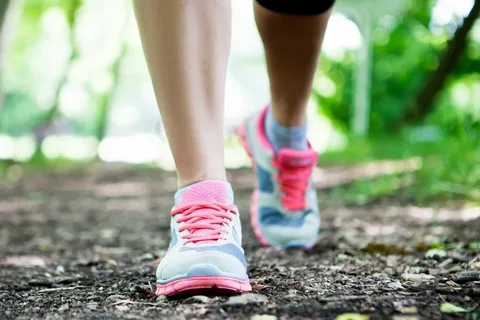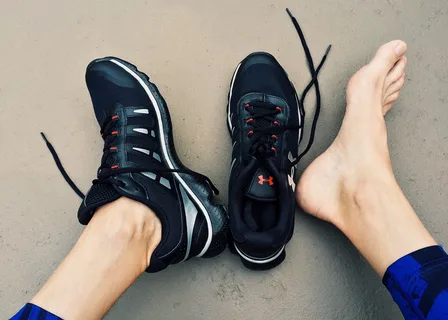Are you living with bunions and looking for a comfortable and stylish shoe? You’re not alone. Bunions can cause discomfort, and finding the right pair of shoes to help alleviate the pain can be a difficult task. In this blog post, we’ll explore some of the most comfortable shoes for bunions so you can have happy feet and a happier you!
Understanding Bunions
Bunions are a common foot condition characterized by a bony bump at the base of the big toe. They develop when the big toe pushes against the adjacent toe, causing the joint at the base of the big toe to protrude. Bunions can result from various factors, including genetics, wearing tight or ill-fitting shoes, and certain medical conditions.
They often lead to discomfort, pain, swelling, redness, and limited toe mobility. While non-surgical treatments like wearing roomy, supportive shoes, using orthotics, and managing pain can help alleviate symptoms, severe cases may require surgical correction to realign the toe joint and relieve the associated discomfort and functional limitations.
Causes and Symptoms of Bunions
Bunions are not only uncomfortable, but they can also be quite unsightly. Understanding the causes and symptoms of bunions is crucial in finding the right solutions for your foot health. Bunions occur when the big toe deviates from its normal position, leaning towards the other toes. This misalignment causes the bone at the base of the big toe to protrude, resulting in a painful and often swollen bony bump.
Several factors can contribute to the formation of bunions, including genetics, wearing tight or narrow shoes, and certain foot conditions. Symptoms of bunions can vary from person to person but commonly include pain, swelling, redness, and difficulty finding comfortable shoes. If left untreated, bunions can worsen over time, making it even more important to address the issue sooner rather than later.
The Importance of Comfortable Bunion-Friendly Shoes
Finding the right pair of shoes is always important, but it becomes even more crucial when dealing with bunions. Comfortable bunion-friendly shoes are essential for relieving pain and preventing further discomfort. Not only can these shoes alleviate the pressure on your bunions, but they can also provide the support your feet need.
Wearing ill-fitting shoes or those with narrow toe boxes can worsen your bunions and cause additional discomfort. On the other hand, bunion-friendly shoes are specifically designed to accommodate the shape and size of your feet, reducing pressure and friction on your bunions. They often have wide-toe boxes, cushioned insoles, and adjustable straps or laces for a customized fit.
Types of Shoes to Avoid With Bunions
When it comes to bunions, you should avoid wearing certain types of shoes. These shoes can exacerbate the discomfort and pain caused by bunions, making your day-to-day activities even more challenging. So, what types of shoes should you steer clear of? First and foremost, high heels are a big no-no for those with bunions.
They not only put pressure on your toes but also force your feet into an unnatural position, exacerbating the misalignment of your big toe. Additionally, shoes with narrow or pointed-toe boxes should be avoided, as they can squeeze your toes together and worsen the protrusion of the bunion. Other shoes to avoid include those with rigid soles and lack of cushioning, as they provide little to no support for your feet.
Flip-flops and ballet flats, although fashionable, offer minimal arch support and can increase the strain on your bunions. By avoiding these types of shoes, you can help alleviate the pain and discomfort caused by bunions. Opt for footwear that provides ample room for your toes to move freely and offers cushioning and support. Your feet will thank you!
 Features To Look For In Bunion-Friendly Shoes
Features To Look For In Bunion-Friendly Shoes
When it comes to finding the perfect pair of bunion-shoes, there are certain features you should look for to ensure maximum comfort and relief. First and foremost, opt for shoes with a wide-toe box. This gives your toes more room to move and helps prevent additional pressure on your bunions. Additionally, cushioned insoles are a must. They provide extra padding and support for your feet, reducing discomfort and absorbing shock with each step.
Adjustable straps or laces are also important, as they allow you to customize the fit of the shoes to accommodate any swelling or discomfort. Finally, choose shoes with a supportive arch and a flexible sole to provide stability and reduce strain on your bunions. With these features in mind, you can find the perfect pair of bunion-friendly shoes that offer comfort and style.
Stylish and Supportive Shoes for Bunions
Now that you understand the importance of finding comfortable shoes for bunions let’s explore some stylish options that offer support and relief. When it comes to finding shoes that are both fashionable and functional, plenty of options are available. One popular choice for bunion-friendly shoes is athletic sneakers. Another stylish option is Mary Jane flats. These shoes often have adjustable straps and wide-toe boxes, making your feet feel supported while looking chic.
If you’re looking for a more professional option, consider block-heeled pumps with round or square-toe boxes. These shoes provide stability and alleviate pressure on your bunions, all while adding a touch of elegance to your outfit. Finding the right shoes for your bunions is crucial for your comfort and overall foot health. Don’t be afraid to prioritize style and support – you deserve it!
Bunion-Friendly Shoes for Every Occasion
When it comes to finding the perfect pair of shoes for your bunions, you don’t have to sacrifice style for comfort. There are bunion-friendly shoes for every occasion that will keep your feet happy and stylish. Athletic sneakers with wide-toe boxes and cushioned insoles are great for everyday wear. Consider block-heeled pumps with round or square-toe boxes if heading to the office or a formal event.
These shoes offer stability and alleviate pressure on your bunions while adding elegance to your outfit. Mary Jane flats with adjustable straps and wide-toe boxes are fashionable for a more casual look. They provide support and keep your feet feeling comfortable all day long. Whether you’re running errands, going to work, or dressing up for a special occasion, bunion-friendly shoes are available to keep your feet happy and pain-free.
Other Pain Relief Options for Bunions
While finding the right pair of shoes is crucial for bunion relief, you can explore other pain relief options. One option is to use bunion pads or cushions, which can provide extra padding and protection for your bunions. These pads can help reduce friction and pressure on the affected area, allowing for greater comfort throughout the day. Another option is using ice packs or cold compresses on your bunions.
Applying cold therapy can help reduce inflammation and swelling, temporarily relieving pain. Wrap an ice pack in a thin cloth and apply it to your bunions for 10 to 15 minutes. Additionally, over-the-counter nonsteroidal anti-inflammatory drugs (NSAIDs) such as ibuprofen or naproxen can help alleviate pain and reduce inflammation associated with bunions. However, consulting with a healthcare professional before starting any medication regimen is important.
Lastly, gentle stretching exercises and foot massages can relieve your bunions. Stretching exercises can help improve flexibility and mobility in your feet, while foot massages can help relax the muscles and relieve tension. Remember, while these pain relief options may offer temporary relief, consulting with a healthcare professional for a comprehensive treatment plan for your bunions is important.
FAQ’s
Have some burning questions about bunions and comfortable shoes? We’ve got you covered! Check out our FAQs below for answers to common inquiries.
Q: Are bunions reversible?
A: Unfortunately, bunions are not reversible without medical intervention. However, wearing proper shoes and caring for your feet can help alleviate discomfort and prevent further progression.
Q: Can I wear high heels with bunions?
A: It’s best to avoid high heels if you have bunions. They can exacerbate the pain and put additional pressure on your toes, worsening the condition. Opt for shoes with lower heels or flats with ample toe room instead.
Q: How often should I replace my friendly shoes for bunions?
A: It’s recommended to replace your shoes for bunions every 6 to 12 months, depending on how often you wear them and their comfort level. Over time, the cushioning and support in the shoes can wear down, so it’s important to regularly assess their condition.
Q: Can bunions be treated without surgery?
A: In many cases, bunions can be managed without surgery. Non-surgical treatments include wearing bunion splints, using orthotic inserts, and performing foot exercises. However, severe cases may require surgical intervention.
Q: Can bunions be prevented?
A: While genetics can play a role in bunion development, wearing proper footwear and caring for your feet can help prevent or delay their onset. Choosing shoes with wide-toe boxes and avoiding tight, narrow shoes can make a big difference.
Conclusion
In summary, finding the right shoes is essential for comfort and style. Bunions can cause discomfort and pain, but you can alleviate the pressure and support your feet need with the right footwear. Avoid shoes that exacerbate the problem, such as high heels and narrow-toe boxes. Instead, look for shoes with wide-toe boxes, cushioned insoles, and adjustable straps. Stylish options are available for every occasion, so you don’t have to sacrifice style for comfort. Consider other pain relief options like bunion pads, ice packs, and stretching exercises. By prioritizing comfort and style, you can have happy feet and a happier you!
| Other Good Articles to Read |
| Blogs Rain |
| Cme Blog Spot |
| Garcias Blogs |
| Yyc Blogs |
| Guiade Blogs |
| Blogs-Hunt |
| Impact-Blog |
| Smarty Blogs |
| Ed Blog |
| Mo Blogs |
| Blogs Em |
| Blogs T |



